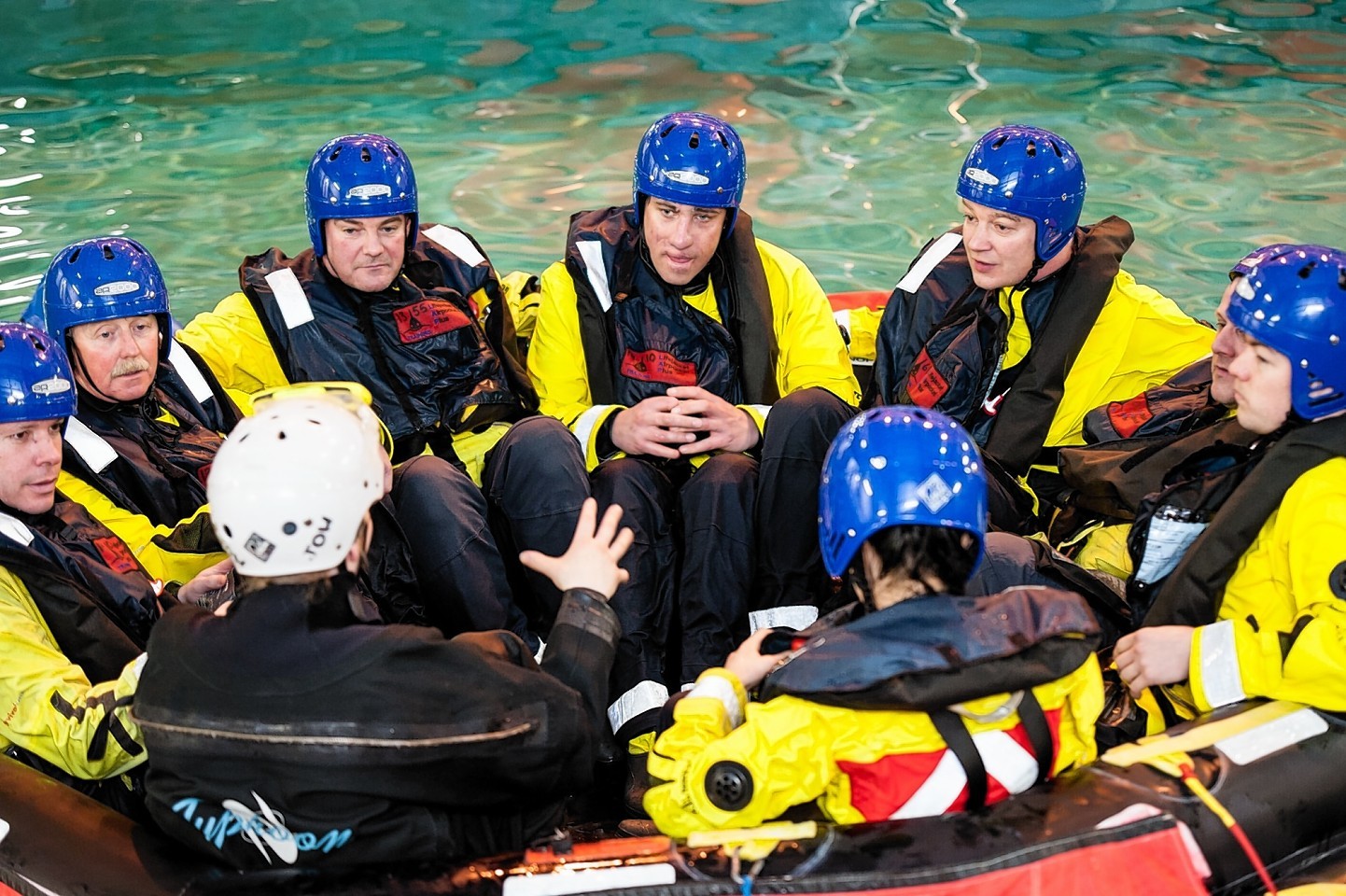Some of them have been injured physically, losing limbs or breaking bones.
Others have psychological scars as a result of what they have seen – and lost – on the battlefield.
But when ex-servicemen and women arrive at Horseback UK in Aboyne, the team there stops treating them as patients and instead starts rebuilding their confidence, focusing on their skills and helping them try to make the transition into the civilian world.
Former Marine Jock Hutchison, who founded the charity with his wife Emma, said the idea was to move away from the “clinical” side of recovery and show those on the courses what they could still do – rather than what they could not.
“There’s nothing sadder than someone telling people how wonderful they were, rather than what they are,” he said.
“Our raison d’etre is to get the guys to stop being a patient.
“We’re not carers, we’re not doctors, we’re not counsellors – we’re here to encourage recovery.
“We’re here to help them make the transition into the civilian world in their own time, when they’re ready.”
And now one of the first men to visit the charity when it was set up 15 years ago is preparing to show injured veterans just how transferable their military skills are.
Corporal Jay Hare, who lost his left leg below the knee, his left eye and some fingers in a bomb blast, has completed his survival training and is preparing to visit Nexen’s Buzzard platform to experience life offshore for himself.
Scores of veterans already work in the oil and gas sector, but Horseback UK is keen to stress the similarities between the industry and military life to those who are perhaps struggling to see beyond their disabilities.
Mr Hutchison said: “The industry is closer to the military than many others, it’s a similar environment for marines or those coming out the army, so it’s a good industry for the guys to transit into.”
During his visit offshore, Cpl Hare will learn more about the various roles performed in the hope of inspiring those attending the charity’s programme to see it as an option for the future.
He said: “There’s radio operations, logistics, lots of avenues for people with a military background to get into.
“Maybe there is a job out there our skills are suitable for.
“We’re still worth our salt and have something to give.”
Although going offshore will be a huge personal challenge for Cpl Hare, who has gone through the same medical and rigorous safety training, including the helicopter simulator, as anyone preparing to work on a rig, he believes the trip also has another crucial purpose – securing the financial future of Horseback UK.
The charity has developed a programme to help businesses, including those in the offshore industry, by teaching leadership skills to staff using military life and horsemanship.
As part of that, the team – including Cpl Hare, who is head of corporate operations for Horseback UK – gives talks to various firms about leadership and team-building.
For Cpl Hare, being able to tell those he is speaking to that he has been offshore and has seen how it works is hugely important.
“I’ve always believed in leading by example,” he said.
“If someone stood up and started talking about my section in Afghanistan, one of my first questions would be, ‘well, have you been’?
“You can read all the books out there about people going to war, but for someone to tell what it’s like they need to have been – and it’s the same for me going offshore.
“I probably won’t get a job full-time offshore, but it is important for me to go so I can say ‘yes, I have been, even with my disabilities’.
“We’re delivering something quite unique. We know what it’s like to work in high-performance teams, and those are skills that are transferable.
“I want to inspire others to see what they still can do.”
